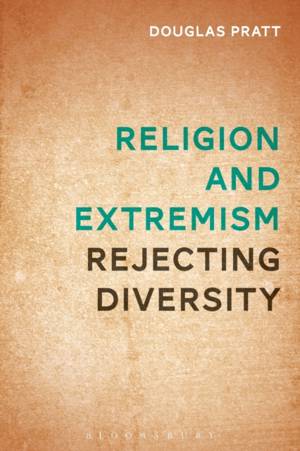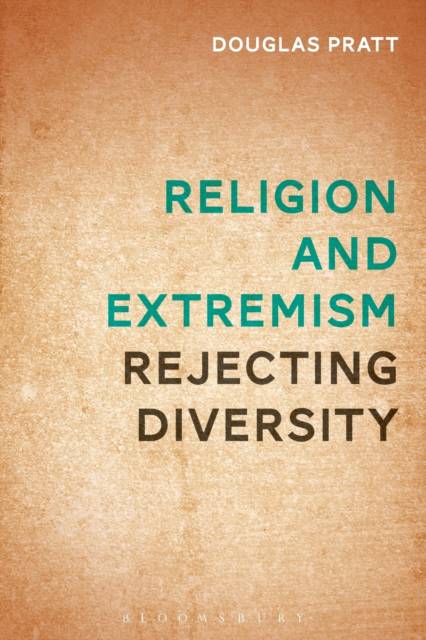
Bedankt voor het vertrouwen het afgelopen jaar! Om jou te bedanken bieden we GRATIS verzending (in België) aan op alles gedurende de hele maand januari.
- Afhalen na 1 uur in een winkel met voorraad
- In januari gratis thuislevering in België
- Ruim aanbod met 7 miljoen producten
Bedankt voor het vertrouwen het afgelopen jaar! Om jou te bedanken bieden we GRATIS verzending (in België) aan op alles gedurende de hele maand januari.
- Afhalen na 1 uur in een winkel met voorraad
- In januari gratis thuislevering in België
- Ruim aanbod met 7 miljoen producten
Zoeken
€ 62,95
+ 125 punten
Uitvoering
Omschrijving
Focusing on the three monotheistic religions of Judaism, Christianity and Islam, Douglas Pratt argues that despite a popular focus on Islam, extremist Jews and Christians can also enact terror and destruction. Religion and Extremism stresses that the ideological rejection of diversity underlies religious extremism resulting in violent behaviours and, increasingly, in hardening social and religious attitudes and responses.
An analysis of religiously-driven terrorism reveals the presence of a distinctive and rigid form of exclusivity found in these religions. In this regard, the contemporary resurgence in totalising claims of fundamentalist ideologues is cause for particular concern. Pratt reasons that however expressed, the motif of the 'Absolute' is central to all, but how that absolute is and has been received, interpreted and responded to, is a matter of great diversity. The author asserts that theological 'Absolutism' displays an underlying dynamic whereby these three religions may be led into extremism. Religion and Extremism also explores contemporary issues of Islamophobia and mutual extremism, identified as 'reactive co-radicalization', and concludes by reflecting on how extremism today might be countered.
An analysis of religiously-driven terrorism reveals the presence of a distinctive and rigid form of exclusivity found in these religions. In this regard, the contemporary resurgence in totalising claims of fundamentalist ideologues is cause for particular concern. Pratt reasons that however expressed, the motif of the 'Absolute' is central to all, but how that absolute is and has been received, interpreted and responded to, is a matter of great diversity. The author asserts that theological 'Absolutism' displays an underlying dynamic whereby these three religions may be led into extremism. Religion and Extremism also explores contemporary issues of Islamophobia and mutual extremism, identified as 'reactive co-radicalization', and concludes by reflecting on how extremism today might be countered.
Specificaties
Betrokkenen
- Auteur(s):
- Uitgeverij:
Inhoud
- Aantal bladzijden:
- 208
- Taal:
- Engels
Eigenschappen
- Productcode (EAN):
- 9781474292245
- Verschijningsdatum:
- 14/12/2017
- Uitvoering:
- Paperback
- Formaat:
- Trade paperback (VS)
- Afmetingen:
- 157 mm x 234 mm
- Gewicht:
- 317 g

Alleen bij Standaard Boekhandel
+ 125 punten op je klantenkaart van Standaard Boekhandel
Beoordelingen
We publiceren alleen reviews die voldoen aan de voorwaarden voor reviews. Bekijk onze voorwaarden voor reviews.









